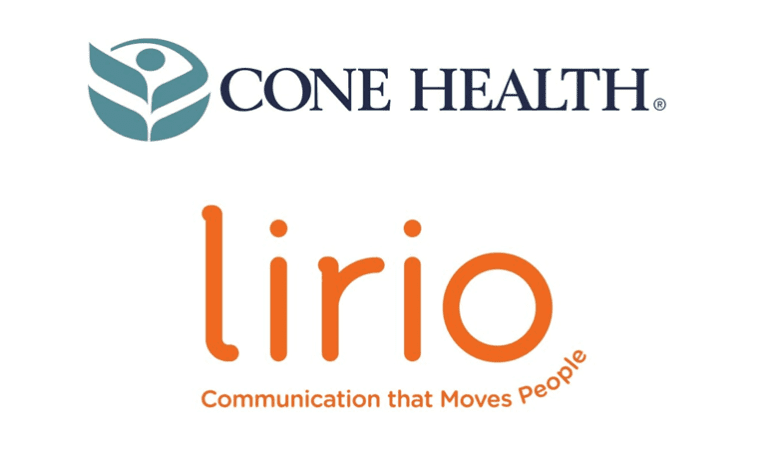- Lirio and Cone Health have launched a new initiative focusing on chronic conditions, specifically diabetes and hypertension.
- This expands upon their strategic partnership announced in 2023.
- Cone Health will utilize Lirio’s Precision Nudging solution to target behavior changes in patient populations.
- The goal is to improve management of chronic conditions, reduce costs, and enhance patient satisfaction.
- Five different Lirio interventions are planned to be in place by the end of the year.
- Lirio’s approach integrates behavioral science with AI to deliver personalized health interventions.
- Cone Health aims to address health disparities in North Carolina’s Piedmont Triad region.
Main AI News:
Lirio, renowned for integrating behavioral science with artificial intelligence to enhance health outcomes, has unveiled a new initiative in partnership with Cone Health, a leading health network in North Carolina. This collaboration expands upon their 2023 alliance, focusing on managing chronic ailments and promoting health equity. It marks a pivotal moment as the first enterprise agreement for Lirio.
Under this extended partnership, Cone Health will leverage Lirio’s Precision Nudging solution to target behavioral changes among its hypertensive and diabetic patient groups. The objective is to effectively manage chronic conditions, reduce costs, and elevate patient satisfaction. By year-end, five distinct Lirio interventions are slated for implementation.
“This strategic partnership with Cone Health introduces adaptive intervention design, powered by cutting-edge behavioral science and AI,” remarked Marten den Haring, CEO of Lirio. “We’re confident that our innovative approach to behavior modification will enable Cone Health to provide personalized support precisely when patients need it most, whether it’s for hypertension, diabetes, or other chronic conditions. We are excited to collaborate with an organization that shares our commitment to health equity.”
Cone Health serves North Carolina’s Piedmont Triad, an ethnically diverse region with nearly 2 million residents facing disproportionately high rates of chronic diseases like hypertension, stroke, and diabetes. The health system has committed $150 million over five years to enhance health equity and aims to narrow a 15-year life expectancy gap within certain populations through its CATCH 5 in 5 initiative.
Lirio’s personalization engine drives hyper-personalized, evidence-based behavioral interventions that guide individuals along their unique health journeys. These interventions are delivered through appropriate channels and at optimal times to encourage patients to take proactive steps toward better health. Messages may include reminders to schedule primary care appointments, monitor blood pressure or blood sugar levels, adhere to prescribed medications, and more.
Powered by Lirio’s advanced Large Behavioral Model, which merges AI and behavioral science, the solution not only predicts individual barriers to action but also provides strategies to overcome them. As the engine continuously learns and refines from consumer data and responses, it optimizes interventions initially for entire populations, then for specific segments, and ultimately for individuals, ensuring each person receives the most effective support tailored to their motivations.
“We’re eager to begin implementing Lirio’s solutions, as we’ve encountered challenges in reaching individuals with significant health issues and in establishing sustainable methods for them to self-manage their conditions,” stated Vi-Anne Antrum, Chief Nursing Officer at Cone Health. “This system represents a groundbreaking approach to overcoming these barriers and motivating individuals to take proactive steps toward improving their health and overall well-being.”
Conclusion:
This collaboration between Lirio and Cone Health marks a significant advancement in leveraging AI and behavioral science to enhance healthcare delivery. By focusing on chronic condition management and health equity, they not only aim to improve patient outcomes and satisfaction but also set a precedent for innovative healthcare solutions that could influence similar initiatives in the market.

